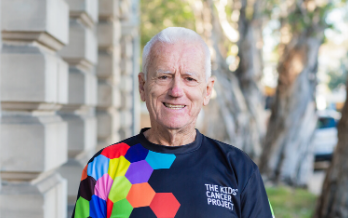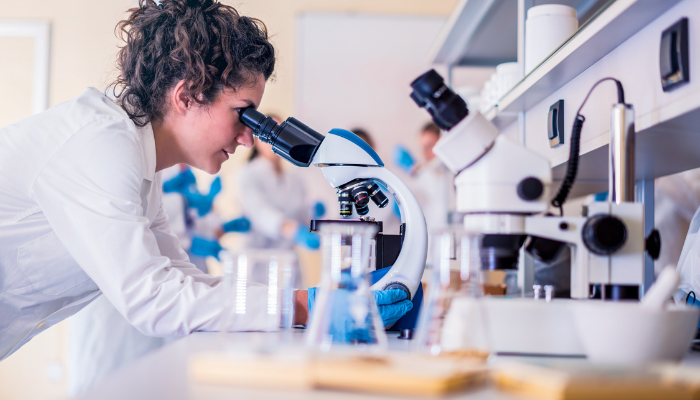Col Reynolds Fellowships, Dr Hannah Walker

Recipient: Hannah Walker
Institute: Murdoch Children’s Research Institute
Funding: $35,000.00
Dr Hannah Walker completed her training as a paediatric oncologist at The Royal Children's Hospital in 2023. Dr Walker's current research focuses on improving our understanding of pulmonary complications that occur post-haematopoietic stem cell transplant (HSCT). Currently completing a Clinical Apheresis Fellowship at The Royal Children's Hospital, she is now undertaking her PhD through the University of Melbourne, The Royal Children's Hospital, and Murdoch Children’s Research Institute. Dr Walker is a member of the Young Investigator Group within The International Society of Paediatric Oncology.
Motivation
I became interested in childhood cancer research during my training as a paediatric oncologist at The Royal Children's Hospital in Melbourne. It was there that I saw firsthand the enormous impact childhood cancer research has on child patients and their families. Research that translates into improved patient outcomes including access to novel targeted therapies, and advanced cellular therapies provides hope for children and families. This inspired me to pursue a career as a clinician scientist through the commencement of a PhD at The University of Melbourne in 2022.
Stemming Toxic Treatments
It was during my training in paediatric stem cell transplant, used for the treatment of children with high-risk leukaemia and lymphoma, that I witnessed some of the severe toxicities that can occur related to this therapy. Whilst stem cell transplant is curative for a child’s underlying cancer it can cause severe and sometimes life-threatening complications, including lung complications. I saw firsthand the impact these complications had on patients and their families and felt inspired to undertake research that helps understand why these occur, how we can identify patients at risk, and improve targetable therapies.
Following Up Post-Transplant
I’m currently working on a project called "BREATH" (Breathe Easier after Allogeneic Transplantation (Haematopoietic)) which involves a prospective single-centre pilot study in children undergoing allogeneic transplantation*. This study aims to recruit children prior to stem cell transplant and follow them up for a period of 12 months, performing detailed immunoprofiling and microbiological analysis of samples collected from children's airways (using bronchoalveolar lavage) and peripheral blood samples collected at multiple timepoints when a child is having a routine clinical general anaesthesia. My role has been to design the study protocol, now in the phase of patient recruitment, and with supervision from my PhD supervisor group analyse these samples using novel techniques to describe lung immune profiles associated with lung health and lung disease post-HSCT.
(*In an allogeneic transplant, stem cells are donated to the patient from another person who is a genetically matched stem cell donor. – Ed.)
Saving lives
Haematopoietic stem cell transplantation (HSCT) remains the only curative treatment option for many children with leukaemia and lymphoma. Unfortunately, HSCT can result in complications that significantly affect the quality of life and even lead to death. This research is critically important because pulmonary complications contribute disproportionately to mortality after HSCT.
Approximately 100 children in Australia and New Zealand undergo HSCT per year, 30% of which are performed at our centre, The Royal Children’s Hospital, Melbourne. It is estimated that pulmonary complications occur in up to 25% of paediatric HSCT recipients, with up to 40% of these patients requiring intensive care unit admission and mechanical ventilation, the latter having the highest rates of mortality.
There is significant heterogeneity in post-transplant pulmonary disease, which includes both infective and non-infective causes. The pathophysiology and henceforth molecular drivers that lead to these devastating complications are not well understood. Infective causes of post-HSCT lung disease include viral, bacterial, and fungal infections. Non-infectious pulmonary complications include alveolar haemorrhage, idiopathic pneumonia syndrome, and bronchiolitis obliterans. Due to a lack of understanding of the immune mechanisms driving this dysregulated pulmonary environment the diagnosis and clinical care of these non-infectious complications is currently limited. Treatment options are therefore limited and can cause significant morbidity; including immune suppression and prolonged hospital stay.
Col Reynolds Fellow PhD Scholarships
It is extremely exciting to be a recipient of the PhD top-up scholarship as it will provide additional financial support to expand the number and types of cytokine analyses we can perform on the respiratory samples collected from children enrolled in our study. This will provide us with more detailed information and characterisation of the immunological mechanisms that promote both lung health and lung disease in this cohort. The next aim for this project’s findings will be to identify potential cytokine markers that may be pharmacological targets in diseased states post-HSCT, thus this funding will speed up the transition from discovery to clinical translation.
Thank You
I would like to sincerely thank The Kids’ Cancer Project and its community of donors for supporting PhD students such as myself through the Col Reynolds Fellowship PhD Scholarship. My aim is to further research alongside my clinical role as a paediatric oncologist. I’m very much looking forward to working together over the next three years and am excited to share our research project findings with you all. Thank you for this opportunity and for providing this generous scholarship through the Col Reynolds Fellowship program.
Find out more about the Col Reynolds Fellowship
With an investment of over $7.6 million, The Kids’ Cancer Project is ensuring that some of the best and brightest young researchers in Australia can further their careers and most importantly, their impact on childhood cancer research.


Read more from past recipients
From a field of outstanding candidates across Australia, The Kids’ Cancer Project has funded the next generation of childhood cancer researchers. Their science-backed research is sure to deliver breakthroughs across a range of areas relating to childhood cancer.

